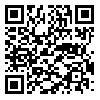Volume 19, Issue 3 (Autumn 2024)
jmed 2024, 19(3): 900-912 |
Back to browse issues page
Download citation:
BibTeX | RIS | EndNote | Medlars | ProCite | Reference Manager | RefWorks
Send citation to:



BibTeX | RIS | EndNote | Medlars | ProCite | Reference Manager | RefWorks
Send citation to:
Maleki M, Alizadeh M. A Review of AI-based Gamification Software and Websites in Medical Education: From Theory to Practice. jmed 2024; 19 (3) :900-912
URL: http://jmed.ssu.ac.ir/article-1-1522-en.html
URL: http://jmed.ssu.ac.ir/article-1-1522-en.html
Tehran University of Medical Sciences , alizade.aban@gmail.com
Abstract: (1332 Views)
Introduction: Gamification, the application of game design elements in non-game contexts, has been revolutionized by the rapid advancement of technology, particularly artificial intelligence (AI). By providing real-time feedback and personalized learning experiences, AI-powered gamification has emerged as a pivotal tool in enhancing medical education. This approach leverages both intrinsic and extrinsic motivation to facilitate the learning process and bolster cognitive and practical skills among medical students.
Method: This scoping review comprehensively examined software and websites that integrate AI and gamification elements in medical education. Data were sourced from diverse academic databases including PubMed, Scopus, Google Scholar, and other reputable repositories. Studies published between 2008 and 2024 were included if they directly addressed the application of AI and gamification in medical education.
Results: Among 3075 identified articles, 22 were selected for analysis. Nine software tools and websites incorporating gamification and AI in education were identified. These tools, underpinned by gamification elements and learning theories, foster enhanced motivation and individualized learning experiences.
Conclusion: The findings underscore the potential of AI-powered gamification to significantly improve learning outcomes and strengthen cognitive and practical skills among medical students. By providing immediate feedback and creating interactive learning environments, these tools render the learning process more engaging. Further research is warranted to explore their applications across diverse educational contexts
Method: This scoping review comprehensively examined software and websites that integrate AI and gamification elements in medical education. Data were sourced from diverse academic databases including PubMed, Scopus, Google Scholar, and other reputable repositories. Studies published between 2008 and 2024 were included if they directly addressed the application of AI and gamification in medical education.
Results: Among 3075 identified articles, 22 were selected for analysis. Nine software tools and websites incorporating gamification and AI in education were identified. These tools, underpinned by gamification elements and learning theories, foster enhanced motivation and individualized learning experiences.
Conclusion: The findings underscore the potential of AI-powered gamification to significantly improve learning outcomes and strengthen cognitive and practical skills among medical students. By providing immediate feedback and creating interactive learning environments, these tools render the learning process more engaging. Further research is warranted to explore their applications across diverse educational contexts
Keywords: Artificial intelligence, gamification, AI-powered gamification, software, medical education
Type of Study: Review |
Subject:
Medical Education
Received: 2024/10/13 | Accepted: 2024/11/25 | Published: 2024/12/28
Received: 2024/10/13 | Accepted: 2024/11/25 | Published: 2024/12/28
Send email to the article author
| Rights and permissions | |
 |
This work is licensed under a Creative Commons Attribution-NonCommercial 4.0 International License. |







